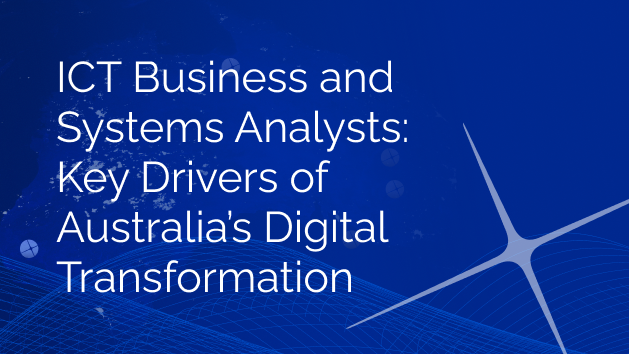ICT Business and Systems Analysts: Shaping Australia’s Digital Future
Australia’s digital landscape is rapidly evolving, and at the heart of this transformation are ICT Business and Systems Analysts. These professionals play a crucial role in driving innovation, solving business problems, and implementing technological solutions that propel industries forward. A Growing Workforce of Skilled Professionals With 54,300 ICT Business and Systems Analysts working across the country, this is a thriving and in-demand occupation. The median age of professionals in this field is 41, reflecting a diverse mix of experience and fresh perspectives. Most of these professionals fall within the age range of 35-44 years (37.9%), followed by those aged 45-54 (25.6%) and 25-34 (19.4%). Competitive Earnings in a Rewarding Career ICT Business and Systems Analysts enjoy lucrative careers, with median weekly earnings sitting at $2,742. These earnings reflect the high demand for skilled analysts capable of bridging the gap between business needs and technology solutions. In an increasingly digital world, their expertise is not only valuable but critical. Key Industries Driving Demand These professionals are particularly sought after in industries such as: Professional, Scientific, and Technical Services Public Administration and Safety Financial and Insurance Services As organisations in these sectors continue to digitise and optimise their operations, the demand for ICT Business and Systems Analysts will only grow. Full-Time Opportunities Across Australia An impressive 94% of ICT Business and Systems Analysts work full-time, indicating a stable and secure career choice. The annual employment growth in this field is projected to increase by 3,900 jobs, making it a promising career path for those entering the workforce or seeking new opportunities. Women in ICT Business and Systems Analysis While traditionally a male-dominated field, more women are making their mark as ICT Business and Systems Analysts, with 34% of roles held by females. This growing representation is helping to bring diverse perspectives to the industry, enriching the way businesses and technology interact. Top Locations for ICT Business and Systems Analysts Opportunities for ICT Business and Systems Analysts are spread across Australia, with the highest concentration of professionals in New South Wales (34.9%), Victoria (33.2%), and Queensland (14.4%). Other key regions include Western Australia (7.6%) and the Australian Capital Territory (5.5%). Ignite: Empowering ICT Business and Systems Analysts At Ignite, we are committed to empowering ICT Business and Systems Analysts across Australia. Whether you're an experienced professional or looking to start your career, our extensive network and specialised recruitment services can help you find the perfect opportunity. Visit our IT Recruitment page today to learn more about how we can help you take the next step in your career as an ICT Business and Systems Analyst.
Read More



